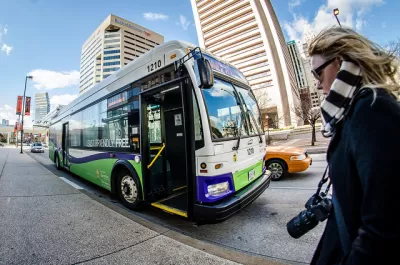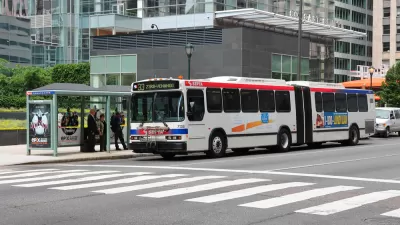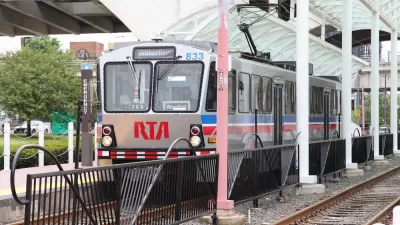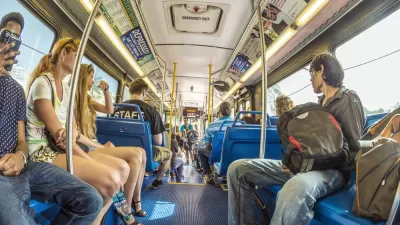With federal infrastructure funding on the table, local leaders are calling for a comprehensive strategy to improve the region’s public transit.

A group of civic leaders in Baltimore is calling on the city and the region to develop a comprehensive vision for the region’s mass transit—before federal infrastructure funds dry up. As Bruce DePuyt reports in Maryland Matters, “Their campaign, called Baltimore’s Transit Future, hopes to unite elected leaders, the business community and the public in support of a long-range plan to expand bus and rail service. They also want to make existing service more reliable.”
According to the article, “The effort will be shaped by six ‘pillars,’ which will include reducing the repair backlog, improving access to job centers, equity and the development of a 10-year ‘Rapid Transit Expansion Program.’” DePuyt notes that “Baltimore’s rail system pales in comparison to Metro, the commuter rail network in the Washington, D.C. region, even though both were launched at the same time. The region’s bus network performs below cities of comparable size.”
The campaign emphasizes that “As the region tries to bounce back from the pandemic, and with significant expansion underway at Tradepoint Atlantic, business leaders said the region is being held back by its substandard bus and rail operations.”
“Passage of a federal infrastructure bill has spurred conversations about the need to improve transit in Baltimore, with many advocates arguing for the creation of an authority similar to the Washington Metropolitan Area Transit Authority (WMATA).” DePuyt points out that “Leaders of the Baltimore’s Transit Future campaign said they are not endorsing the authority concept, nor have they coalesced behind any particular modes of travel or routes.”
FULL STORY: Baltimore Must Embrace Transit Vision While the Feds Are Flush With Funds, Groups Say

Alabama: Trump Terminates Settlements for Black Communities Harmed By Raw Sewage
Trump deemed the landmark civil rights agreement “illegal DEI and environmental justice policy.”

Study: Maui’s Plan to Convert Vacation Rentals to Long-Term Housing Could Cause Nearly $1 Billion Economic Loss
The plan would reduce visitor accommodation by 25% resulting in 1,900 jobs lost.

Planetizen Federal Action Tracker
A weekly monitor of how Trump’s orders and actions are impacting planners and planning in America.

Waymo Gets Permission to Map SF’s Market Street
If allowed to operate on the traffic-restricted street, Waymo’s autonomous taxis would have a leg up over ride-hailing competitors — and counter the city’s efforts to grow bike and pedestrian on the thoroughfare.

Parklet Symposium Highlights the Success of Shared Spaces
Parklets got a boost during the Covid-19 pandemic, when the concept was translated to outdoor dining programs that offered restaurants a lifeline during the shutdown.

Federal Homelessness Agency Places Entire Staff on Leave
The U.S. Interagency Council on Homelessness is the only federal agency dedicated to preventing and ending homelessness.
Urban Design for Planners 1: Software Tools
This six-course series explores essential urban design concepts using open source software and equips planners with the tools they need to participate fully in the urban design process.
Planning for Universal Design
Learn the tools for implementing Universal Design in planning regulations.
Caltrans
Smith Gee Studio
Institute for Housing and Urban Development Studies (IHS)
City of Grandview
Harvard GSD Executive Education
Toledo-Lucas County Plan Commissions
Salt Lake City
NYU Wagner Graduate School of Public Service





























